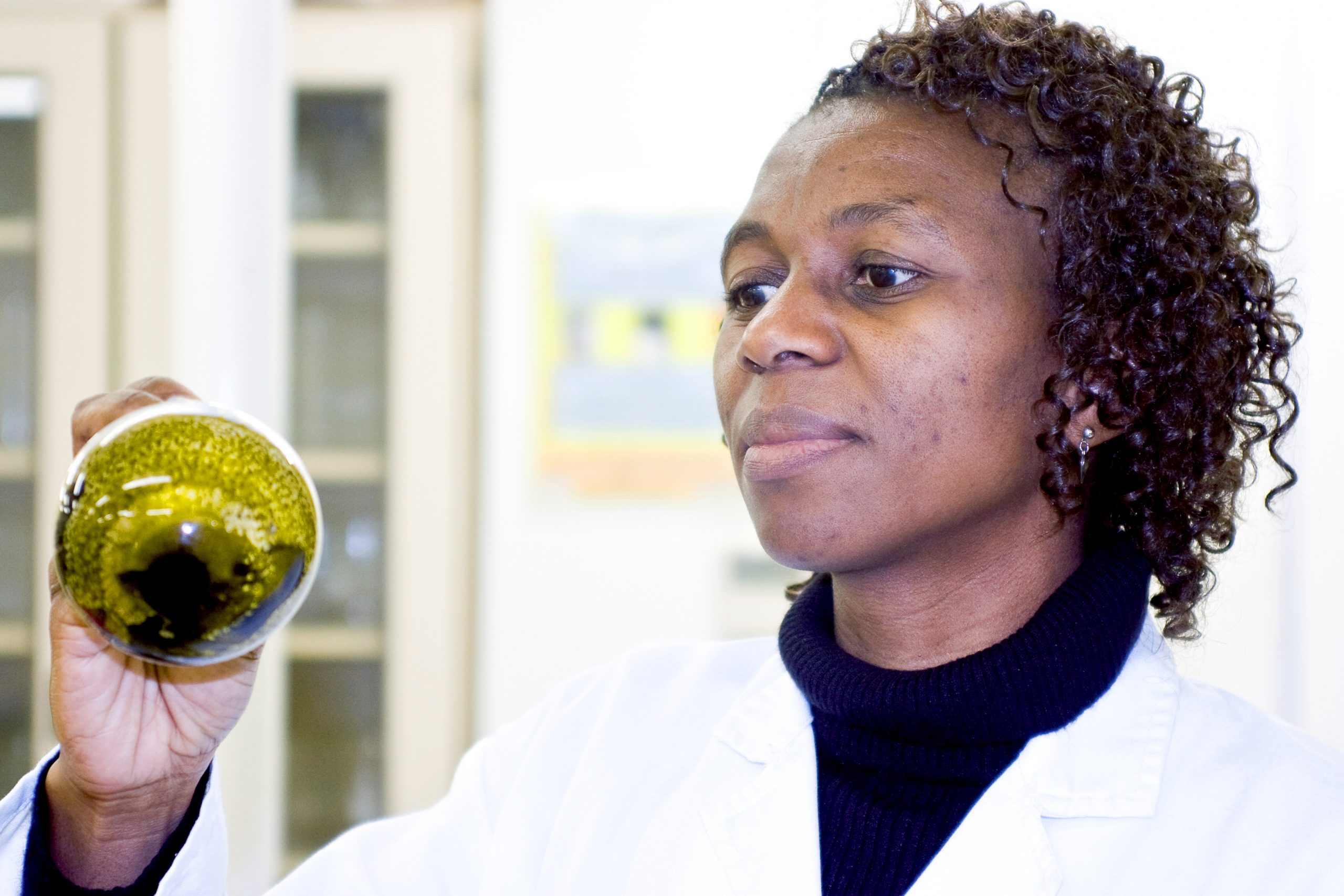
(2008 Malawian AWARD Fellow, Victoria Ndolo)
That the world continues to be plagued by a yawning gender gap, depriving it of massive untapped resources, cannot be overstated.
As we commemorated International Women’s Day 2021, we purposed to sustain the conversation on women in leadership through a month-long campaign that spotlighted women leading agricultural research culminating into a webinar on March 31, 2021, on women in science and leadership. Hosted by African Women in Agricultural Research and Development (AWARD) and the International Veterinary Vaccinology Network (IVVN), the webinar featured a conversation on eliminating systemic barriers that perpetuate gender bias in science and opportunities for reducing the persisting gender gap.
Achieving gender equality is crucial for improving women’s participation in science. As women face unprecedented upheavals, as evidenced by studies, we have the opportunity not only to increase the chances for women in STEM but to support a more innovative and equitable future. Bridging this gap calls for bold and transformative steps such as recognizing unconscious bias, implementing holistic approaches, including the right policies to address women’s underrepresentation in science leadership. Further, structured and affordable mentoring programs, funding opportunities, and equal leadership and management opportunities are essential to promoting interventions that pivot women to the top of science leadership, as noted by the webinar participants.
Studies have shown that mentoring inspires women to pursue careers in STEM. One of the panelists, Dr. Cathrine Ziyomo, a Senior Scientist and Director at the Biosciences Eastern and Central Africa – International Livestock Research Institute (BecA – ILRI) Hub, Nairobi, Kenya, stated that the value of good role models and mentors should not be ignored. She pointed that mentors are critical in building individual strength and creating a support system throughout women scientists’ careers. Mentoring was highlighted as an essential strategy in equipping women with strategies to navigate the power structures in leadership. Dr. Esther Kanduma, a lecturer at the University of Nairobi and a Kenyan AWARD Fellow, reiterated the value of mentoring, referencing how she has benefited from the AWARD mentoring program during her participation in the AWARD Fellowship. Dr. Kanduma pointed out that women’s contribution cannot be undermined in influencing positive changes in power structures, especially at the institutional levels.
“We all have a role in ensuring women’s effective participation in science and strengthening women’s empowerment. Women are an integral part of development, society needs women, and science needs women,” said Dr. Kanduma.
The gender gap in science is a crucial constraint to innovation, hindering development and economic growth. Issues like deeply embedded traditional stereotypes that view science as masculine greatly undermine women’s participation in science. To bridge the gap, we must identify the barriers and provide effective solutions. Ms. Jayne Quoiani, Education & Engagement Officer at Roslin Institute, University of Edinburgh, UK, emphasized that it is vital to start naturing young girls into science careers as early as primary schools.
“We must make science more relatable, make women scientists more visible and communicate the inequalities,” she said.
Dr. Barberine Silatsa Assongo, a Research Fellow at the University of Dschang, Cameroon, and an Africa Biosciences Challenge Fund Fellow, added that addressing barriers such as language and work environment goes a long way in ensuring women do not fall off the pipeline.
Women make up an integral part of scientific innovations and achieving gender equality. There is a growing need to examine the biases, both conscious and unconscious, critically. Dr. Kanduma mentioned that it is not enough to have good gender policies in learning institutions and organizations. She reiterated the important place of champions who hold institution leadership into account and ensure that the policies are implemented. Similarly, Ms. Quoiani noted that the underrepresentation of women in science is not just a women’s issue but a societal problem.
“You cannot be what you cannot see,” said Ms. Quoiani.
The lack of representation at all levels impacts the quality the science, hence impacting society. She stated that diversifying talents across all platforms ensures that organizations are using their full potential. Dr. Ziyomo emphasized the significance of establishing the right frameworks that allow both women and men to exist and thrive in leadership.
We must also recognize the existing structures already in place to help pave the way for women in science. Leveraging these structures and spaces like the global events and campaigns, such as the International Day of Women and Girls in Science, are a start to fixing and sustaining the pipeline. In her concluding remarks, the panel moderator Dr. Michèle Mbo’o-Tchouawou, AWARD’s Deputy Director, Programs, challenged the audience to examine what their institutions are doing to support more women science leaders and whether their approaches have made progress.
“We hope to bring more women scientists to document their experiences in different spaces as we pave more ways for women leaders in science,” she said.
